Speakers
The 2016 conference featured highly respected speakers from across the globe.

Prof. David Anderson
Prof. David Anderson

Prof. David J. Anderson is the Seymour Benzer Professor of Biology at the California Institute of Technology in Pasadena, USA and an Investigator of the Howard Hughes Medical Institute. He received his A.B. from Harvard University (Biochemical Sciences, Summa Cum Laude), his Ph.D. in Cell Biology from the Rockefeller University, where he trained with Nobel Laureate Guenter Blobel, and his postdoctoral training at Columbia University with Nobel Laureate Richard Axel. For the first 20 years of his career, Prof. Anderson’s research focused on the biology of neural stem cells and their role in brain development; he was the first to isolate a multipotential neural stem cell from the mammalian nervous system. Over the last 15 years, Prof. Anderson has switched his research focus to the study of neural circuits that control emotional behaviors in animal models. He has been at the forefront of developing and applying new technologies for neural circuit manipulation, such as optogenetics and pharmacogenetics, to the study of emotional behaviors such as fear, anxiety and aggression, in both mice and the fruit fly Drosophila melanogaster. His work in mice is currently focused on limbic circuits, including the amygdala and hypothalamus, and their role in aggression. Prof. Anderson has trained over 50 postdoctoral fellows and Ph.D. students in his 30 years on the faculty at Caltech. He has been a recipient of continuous research support from the NIH since 1986, and an HHMI Investigator since 1989. He has received additional funding from agencies and foundations such as NARSAD, the Pew Foundation, and the Sloan Foundation. Prof. Anderson’s awards include an NSF Presidential Young Investigator Award, Searle Scholars Award, the Charles Judson Herrick Award in Comparative Neurology and the Alden Spencer Award in Neurobiology from Columbia University. He is a fellow of the American Academy of Arts and Sciences and in 2007 was elected to the U.S. National Academy of Sciences.
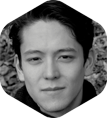
Mr. Jan Beller
Mr. Jan Beller

Jan Beller studies Drama at the Zurich University of the Arts since 2013. Previously he studied at the Ludwig Maximilian University of Munich. Since 2008 he is acting in a number of acts in Germany and Switzerland.

Dr. Catherine Berens
Dr. Catherine Berens

Dr. Catherine Berens was trained as a pharmacist and obtained her PhD in Pharmaceutical Sciences from the Catholic University of Louvain, Belgium. After having worked for the European Directorate for the Quality of Medicines (European Pharmacopoeia, Council of Europe, Strasbourg), she joined the European Commission in Brussels in 2002, as a Scientific Officer in charge of Rare Diseases in the Health Directorate of Directorate-General for Research and Innovation. From 2012, she worked as a Policy Officer for Pharmaceuticals in the Directorate-General Enterprise and Industry, dealing with pricing and reimbursement of pharmaceuticals, and access to medicines. Since 2014 she has been the Head of Sector Neuroscience, at the Health Directorate of Directorate-General for Research and Innovation.

Prof. Aude Billard
Prof. Aude Billard

Prof. Aude Billard is head of the Learning Algorithms and Systems Laboratory (LASA) at the School of Engineering at the EPFL, Switzerland. She received a M.Sc. in Physics from EPFL (1995), a MSc. in Knowledge-based Systems (1996) and a Ph.D. in Artificial Intelligence (1998) from the University of Edinburgh. Her research spans the fields of machine learning and robotics with a particular emphasis on learning from sparse data and performing fast and robust retrieval. Her work finds application to robotics, human-robot / human-computer interaction and computational neuroscience.
She was the recipient of the Intel Corporation Teaching award, the Swiss National Science Foundation career award in 2002, the Outstanding Young Person in Science and Innovation from the Swiss Chamber of Commerce and the IEEE-RAS Best Reviewer Award. Her research was nominated and received best paper awards at IEEE TRO, ICRA, IROS, NIPS, Humanoids, ROMAN and was featured in premier venues (BBC, IEEE Spectrum, Wired).

Dr. Gene Bowman
Dr. Gene Bowman

Dr. Gene Bowman is a pioneer in the area of nutrition and Alzheimer’s disease and has an international reputation as an authority in biomarkers of diet and individualized nutritional therapies for cognitive health.He completed NIH sponsored postdoctoral fellowship and subsequent NIH career development award (K23) in Aging and Alzheimer’s disease at Oregon Health & Science University’s (OHSU) Department of Neurology in Portland, USA. In 2013, he secured funding from the National Institute on Aging at the NIH to translate emerging research in his lab and lead the first “targeted” nutritional intervention to prevent cognitive decline in older adults in the US.In 2014, he was recruited out of academia by Nestle to build a brain nutrition research program that generates knowledge for the renovation and innovation of nutritional products well suited for addressing the public health burden of age-related cognitive decline and dementias. He balances this initiative by also serving as Co-Chair and Co-Founder of the “Nutrition, Metabolism and Dementia” scientific professional interest area at the Alzheimer’s Association, Associate Professor of Neurology at OHSU, Associate Editor for the Journal of Alzheimer’s disease, and a current research portfolio that leverages over 40 million USD globally.
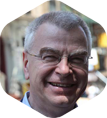
Prof. György Buzsáki
Prof. György Buzsáki

Prof. György Buzsáki graduated (M.D.) from the University of Pecs, Hungary in 1974. He received his Ph.D. in Neuroscience from the Academy of Sciences, Budapest in 1984. Currently he is a Biggs Professor of Neuroscience at The Neuroscience Institute, New Your University, USA. His primary research interest is how neuronal circuits code, transfer and store information, especially how different brain oscillations serve such mechanisms. His two-stage (wake-sleep) model of memory has been supported by research in numerous laboratories world-wide. Prof. Buzsáki is an elected Fellow of the American Association for the Advancement of Science and a member of the Hungarian Academy of Sciences, and he sits on the editorial boards of several leading neuroscience journals, including Science and Neuron.

Dr. Antonella Chadha Santuccione
Dr. Antonella Chadha Santuccione

Dr. Antonella Santuccione Chadha joined the Swiss Agency for Therapeutic Products in Bern in 2014 as a Specialized Clinical Reviewer in the field of psychiatric disorders. Previous to this, she was appointed by Roche as Medical Manager for Psychiatry. Before joining the industry, she worked as a neuroscientist and a medical doctor at the Psychiatry University Hospital in Zurich.
During this period she extensively investigated the pathogenesis of Alzheimer’s disease (AD) and other neurodegenerative disorders. The focus of her studies was to identify a possible immunotherapy for AD. In her early career, she worked as a post-doctoral fellow in the laboratory of Prof. Melitta Schachner where she studied Prion’s Diseases.

Dr. Greg Corrado
Dr. Greg Corrado

Dr. Greg Corrado is a senior research scientist who works at the intersection of in artificial intelligence, computational neuroscience, and scalable machine learning. He has published in fields ranging from behavioral economics, to particle physics, to systems neuroscience, and deep learning. At Google he has worked for some time on biologically inspired computing, and most recently has served as one of the founding members and the technical lead of Google's large scale deep neural networks project, Google Brain. Before coming to Google, he worked at IBM Research on neuromorphic silicon chip design. He did his graduate work in Neuroscience and Computer Science at Stanford University, and his undergraduate in Physics at Princeton University.

Prof. Monica Di Luca
Prof. Monica Di Luca

Prof. Monica Di Luca has been Professor of Pharmacology at the University of Milan, Italy since 1999. She graduated in Chemistry and Pharmacology from the University of Milan in 1986 and completed her PhD in Pharmacology at the University of Milan in 1992, and in medical sciences at the University of Utrecht in 1993. Her primary research interest is related to the brain and synaptic plasticity both in physiological and pathological conditions, with the primary aim to apply her basic findings to the cure of neurodegenerative diseases as Alzheimer’s Disease. She is author of more that 190 scientific publications in peer-reviewed journals.
She is member of the Council and Executive committee of several national and international scientific organisations. From 2000 to 2006 she performed as Secretary General of the Federation of European Neuroscience Societies (FENS) and from 2005 to 2010 she was Chair of the International Brain Organisation Western Europe Chapter. She was Vice-President of the European Brain Council until 2012. At present she is President of FENS.

Dr. Sophie Dix
Dr. Sophie Dix

Dr. Sophie Dix is the Director of Research at MQ: Transforming Mental Health. MQ is a major new charity raising funds to invest in world-class research to improve treatments, help us to understand the causes and find ways to prevent mental illness. MQ supports research internationally across all the sciences, from basic bench research to clinical studies to the social sciences. Dr. Dix joined MQ in July 2015. Prior to that, she spent 14 years at Eli Lilly based Surrey. Her work included efforts to understand the neural circuitry underpinning behavioural endophenotypes associated with Psychiatric and Neurodegenerative disease. Dr. Dix has had a leadership role in a major EU-funded IMI (Innovative Medicines Initiative) project on biomarkers for Alzheimer’s Disease (PharmaCog). She also sits on the UK government scientific advisory committee on the use of animals in scientific research. Dr. Dix holds a BSc in Anatomical science from Bristol University, UK a MSc in Neuroscience from Oxford University and a PhD in Psychology awarded by Cardiff University.

Prof. John P. Donoghue
Prof. John P. Donoghue

Prof. John P. Donoghue is a neuroscientist known for his pioneering work in the field of human brain computer interfaces, as well as for research on brain function and plasticity.
He is the founding Director of the Wyss Center for Bio and Neuroengineering, based at Campus Biotech in Geneva, Switzerland.
He founded the Brown Institute of Brain Science at Brown University, Rhode Island, USA where he spent more than 30 years and where he maintains a professorship. He also holds an adjunct professorship at the EPFL and is a visiting professor at the University of Geneva in Switzerland.
Prof. Donoghue was a co-founder of an early neurotechnology startup company, Cyberkinetics.
He has spoken worldwide, including lectures at the World Economic Forum, the Vatican Pontifical Academy of Science and an Alfred Nobel Symposium.
His work has been widely featured in the media, including the New York Times, the Economist, the Financial Times, as well as US and international television.
In 2013 his BrainGate neurotechnology, that aims to restore movement for people with paralysis, was recognised by the first Israel B.R.A.I.N. (Breakthrough Research And Innovation in Neurotechnology) prize, as well as the German Zülch in 2007, the Roche-Nature Medicine 2010, and Schrödinger prizes 2012.
Prof. Donoghue is a Fellow of several academies including the US Institute of Medicine, the American Academy of Arts and Science, the American Institute for Medical and Biomedical Engineering, the American Association for the Advancement of Science and the Academy of Inventors. He was also a member of the National Institutes of Health Committee for The White House BRAIN Initiative.

Ms. Annina Euling
Ms. Annina Euling

Annina Euling started performing at the age of five in the opera Madama Butterfly by Giacomo Puccini at the Theater Freiburg. Later she worked in the youth ensembles of the Theater Freiburg and Theater Solothurn. Since 2013, she is studying drama at the Zurich University of the Arts.
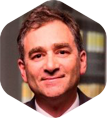
Mr. Claude Florin
Mr. Claude Florin

Mr. Claude Florin is a president of A3 Angels, a business angel club at EPFL, providing seed funding and mentoring to over 40 startups and has been partner at Polytech Ventures, a Seed Fund at EPFL. He is member of the European Commission Horizon2020 Advisory Board for innovation financing.
Mr. Florin co-founded three startups in semiconductors and communications. He has been investor and advisor in life science start-ups: Antlia (drug delivery), Sophia Genetics (genomics diagnostic software), Vivamea (e-health), Domosafety (home care), Nebion (genomics) and several other technology startups.
Previously Mr. Florin held management positions at Hewlett-Packard ‘s Communications and Media Solutions and Hewlett-Packard’s Medical Products Group (now Philips Healthcare). He has led 6 technology business unit launches and established ventures with industry leaders in medtech and telecommunications.
Mr. Florin has a MS degree in Electrical Engineering, a CAS on managing medtech ventures from EPFL, Switzerland and completed his business education at IMD and Harvard Business School with a focus on managing innovation and venture capital investments.

Prof. Jack Gallant
Prof. Jack Gallant

Prof. Jack Gallant is Chancellor's Professor of Psychology at the University of California at Berkeley, USA. He is affiliated with the graduate programmes in Bioengineering, Biophysics, Neuroscience and Vision Science. He received his Ph.D. from Yale University and did post-doctoral work at the California Institute of Technology and Washington University Medical School. His research programme focuses on computational modelling of the human brain. These models accurately describe how the brain encodes information during complex, naturalistic tasks, and they show how information about the external and internal world are mapped systematically across the surface of the cerebral cortex. These models can also be used to decode information in the brain in order to reconstruct mental experiences. Prof. Gallant's brain decoding algorithm was one of Times Magazine's Inventions of the Year in 2011, and he appears frequently on radio and television.

Dr. Markus Goebel
Dr. Markus Goebel

Dr. Markus Goebel started his career in the Health Care Industry in 1990. An MD by training and certified, amongst others, in hematology/oncology he worked for Farmitalia Germany and later held several global positions in R&D, Marketing and Strategy at Roche headquarters to include a worldwide alliance with Amgen. He joined Novartis in 2000 and first worked as Global Head Nervous System BD&L Pharma and later as Global Head Pharma Corporate M&A. In 2004 he joined the Novartis Venture Fund as a Managing Director in the US, moving back to Europe in 2009 in the same position. Previously he received an MD and a PhD from the Ludwig Maximilian’s University in Munich and an MBA from Henley Management College. Dr. Goebel serves on the boards of several Novartis Venture Fund portfolio companies, having exited, amongst others from Sirtris, FoldRx, EraGen, Intellikine and LigoCyte.
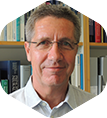
Prof. Thomas Grunwald
Prof. Thomas Grunwald

Prof. Thomas Grunwald was born in 1956 in Germany and now lives in Zürich, Switzerland. He is a Neurologist, specialising in epileptology and clinical neurophysiology and especially in pre-surgical evaluations for epilepsy surgery at the Swiss Epilepsy Centre in Zürich. In addition, he is Senior Consultant for epileptology at the Department of Neurology, University Hospital Zürich and teaches neurology at Bonn University Medical Centre, Germany. His main area of research is cognitive neurophysiology of memory processes, and he cooperates in the study of neurophysiological correlates of artistic and rhetorical communication with the Zürich University of the Arts, Switzerland, and the University of Arts and Design in Karlsruhe, Germany.
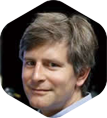
Prof. Michael Häusser
Prof. Michael Häusser

Prof. Michael Häusser is Professor of Neuroscience at University College London (UCL), UK and a Wellcome Trust Principal Research Fellow. He trained at University of Oxford, the Max-Planck-Institute for Medical Research in Heidelberg and the Ecole Normale Supérieure in Paris. He established his own laboratory at UCL in 1997.
Prof. Häusser’s group is interested in understanding the cellular basis of neural computation, focusing on dendritic function and processing of synaptic input in relation to network activity in the intact brain. His work integrates approaches and techniques at different levels of brain function to study the cellular basis of information processing in the cerebellar and cerebral cortex. He uses a combined strategy of in vitro and in vivo imaging and electrophysiology, taking advantage of a range of high-tech approaches developed in his lab. These include two-photon imaging techniques, patch-clamp recordings from axons and dendrites and simultaneous recordings from multiple synaptically connected cells. His experiments are complemented by computational models of single neurons and networks of neurons. His aim is to link different levels of brain function, in order to reveal how activity in single neurons and neural circuits encodes defined behaviours and, importantly, what kinds of changes take place within these circuits during learning.

Dr. Aki Hintsa
Dr. Aki Hintsa

Dr. Aki Hintsa (born 1958 in Finland) is a specialist in orthopaedic and trauma surgery, and the founder of Hintsa Performance.
For a number of years during the 1990’s he lived in Africa, working as a missionary doctor. During this time, Dr. Hintsa had the chance to observe the training routines of elite Ethiopian distance runners. He was intrigued by their dominance in this demanding sport. He also observed how the athletes’ lived in a state of balance. Their lives were integrated, with all elements in their environment geared towards supporting their running ambitions. Dr. Hintsa soon came to the realisation, which later established the foundation of our philosophy, that success derives from holistic wellbeing.
In 1998, Dr. Hintsa began to work in the world of Formula 1, eventually becoming physician and chief medical officer for the McLaren team; a position he held for 11 years. This fast-paced environment provided the ideal context for Dr. Hintsa to put his ideas to the ultimate test. In parallel, Dr. Hintsa began to assemble a world-class team, to develop and scale his methods. The results speak for themselves. To the present day, Dr. Hintsa’s philosophy has supported ten Formula 1 World Championship titles and Hintsa Performance has grown into a network of over 30 experts.
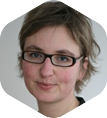
Prof. Emily Holmes
Prof. Emily Holmes

Prof. Emily Holmes is Programme Leader at the MRC (Medical Research Council) Cognition and Brain Sciences Unit in Cambridge, UK. She is Guest Professor in Clinical Psychology at Karolinska Institutet in Sweden, and an Honorary Professor in Psychiatry at the University of Oxford. She is cognitive scientist and clinical psychologist. She is on the Board of Trustees of the research charity “MQ; transforming mental health.” and Chair of their Fellows Committee.
Within mental health science, her field is experimental psychopathology for psychological treatment innovation. Linking cognitive science with clinical psychology, psychiatry and neuroscience her team’s research focuses on psychological trauma and mood disorders, with a particular interest in mental imagery and emotion.
She is Associate Editor of “Clinical Psychological Science”. Her research has been recognised by the British Psychological Society’s Spearman Medal (2010), Humboldt Foundation Friedrich Wilhelm Bessel Research Award (2013), and the American Psychological Association (2014).
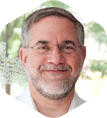
Prof. Steven Hyman
Prof. Steven Hyman

Prof. Steven Hyman is Director of the Stanley Center for Psychiatric Research at the Broad Institute of Harvard and MIT, USA a Core Faculty Member of the Broad Institute, and Harvard University Distinguished Service Professor of Stem Cell and Regenerative Biology. From 2001 to 2011, he served as Provost of Harvard University, the University’s chief academic officer. As Provost he had a special focus on development of collaborative initiatives in the sciences and engineering spanning multiple disciplines and institutions. From 1996 to 2001, he served as director of the US National Institute of Mental Health (NIMH), where he emphasized investment in neuroscience and emerging genetic technologies. He also initiated a series of large practical clinical trials, including an emphasis on children, a population about which little was known.
Prof. Hyman is the editor of the Annual Review of Neuroscience, founding President of the International Neuroethics Society (2008-2014), and President (2015) of the Society for Neuroscience, the leading professional organization for neuroscientists with approximately 40,000 members. He is a member of the Institute of Medicine of the U.S. National Academies where he serves on the governing Council, the Board of Health Science Policy, and chairs the Forum on Neuroscience and Nervous System Disorders, which brings together industry, government, academia, patient groups, and foundations. He is a fellow of the American Academy of Arts and Sciences, a fellow of the American Association for the Advancement of Science, a fellow of the American College of Neuropsychopharmacology, and a Distinguished Life Fellow of the American Psychiatric Association.
Prof. Hyman received his B.A. summa cum laude from Yale College, a B.A. and M.A. from the University of Cambridge, which he attended as a Mellon fellow, and an M.D. cum laude from Harvard Medical School.

Prof. Nancy Ip
Prof. Nancy Ip

Prof. Nancy Ip is currently the Dean of Science, The Morningside Professor of Life Science, and Director of the State Key Laboratory of Molecular Neuroscience at The Hong Kong University of Science and Technology (HKUST). She received her PhD in Pharmacology from Harvard Medical School, USA after which she held the position of Senior Staff Scientist at Regeneron Pharmaceuticals Inc., USA. Since joining HKUST, she has served as Associate Dean of Science, Director of the Biotechnology Research Institute, and Head of the Department of Biochemistry. Prof. Ip's major research interests are in neural development and function as well as drug discovery for neurodegenerative diseases such as Alzheimer's and Parkinson's diseases. She is well known for her seminal discoveries in the biology of neurotrophic factors, which are proteins that promote the survival, development, and maintenance of neurons in the nervous system. She has also made important contributions towards understanding the molecular mechanisms underlying brain development and synaptic plasticity, and their dysregulation in neurological disorders. Using this knowledge, her research team aims to elucidate the pathophysiological mechanisms underlying neurodevelopmental disorders and neurodegenerative diseases, and identify drug leads for these brain disorders. Furthermore, she plays a significant role in the development of biotechnology in Hong Kong, and has launched prominent collaborations with major biopharmaceutical companies, thus placing HKUST on the map for cutting-edge R&D in molecular neuroscience.
As a highly accomplished researcher, Prof. Ip has published over 260 scientific papers with more than 17,600 citations, and holds 41 patents. She was elected to the Chinese Academy of Sciences, the US National Academy of Sciences, the World Academy of Sciences, the Academy of Sciences of Hong Kong and most recently, the American Academy of Arts and Sciences. She has received numerous awards and honours including the National Natural Science Awards, the L'OREAL-UNESCO for Women in Science Award, and the "Chevalier de l'Ordre National du Mérite" by the French Government. She is also the senior editor of the Journal of Neuroscience, and an elected Councillor for two leading global organisations in the fields of neuroscience and pharmacology: the Society for Neuroscience and the CINP (Collegium Internationale Neuro-Psychopharmacologicum). Furthermore, she is a member of the Global Agenda Council on Brain Research of the World Economic Forum.

Dr. Christof Koch
Dr. Christof Koch

Dr. Christof Koch has dedicated his life to researching neuroscience, having spent 25 years at the California Institute of Technology, USA as a Professor in Biology and Engineering. In 2011, Dr. Koch left academia to join the Allen Institute for Brain Science, a not-for-profit organisation dedicated to creating resources to fuel discovery among researchers worldwide and to advance the scientific community's understanding of the brain in health and disease. He is leading a 10-year, large-scale, high throughput effort to build brain observatories to map, analyse, and understand the cerebral cortex. Dr. Koch has authored more than 300 scientific papers and articles, eight patents, and five books concerned with the way neurons process information and the neuronal and computational basis of visual perception, selective attention, and consciousness. Together with his long-time collaborator, Francis Crick, Dr. Koch pioneered the scientific study of consciousness. His latest book is Consciousness -Confessions of a Romantic Reductionist.
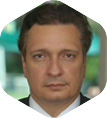
Prof. Julio Licinio
Prof. Julio Licinio

Prof. Julio Licinio, M.D., FRANZCP, is Deputy Director for Translational Medicine and Head, Mind and Brain Theme at the South Australian Health and Medical Research Institute and Strategic Professor of Psychiatry, Flinders University in Adelaide, South Australia. He is also a Research Professor at the University of Southern California, in Los Angeles, Clinical Professor of Psychiatry at University of Adelaide and Visiting Professor of Psychiatry at University of Minho, in Braga, Portugal. He was previously Professor and Director, John Curtin School of Medical Research, The Australian National University (ANU), and head of the Department of Translational Medicine (2009-2013). Prof. Licinio is originally from Brazil and lived for over 25 years in the United States, where he had clinical and research training in endocrinology and psychiatry at University of Chicago, Albert Einstein College of Medicine and Cornell. Prof. Licinio is recognised internationally as a leader in translational research in depression and obesity. He has conducted medical research for over 20 years at Yale, NIH, UCLA, University of Miami and at the ANU, with key leadership positions in those institutions. He is also current and founding Editor of three Nature Publishing Group journals, Molecular Psychiatry (Impact Factor: 14.897 number 1 worldwide), The Pharmacogenomics Journal (Impact Factor 5.1) and Translational Psychiatry. Prof. Licinio’s translational and genomics research spans the lab and clinic examining obesity, depression, and their interface.

Prof. Christian Lüscher
Prof. Christian Lüscher

Prof. Christian Lüscher is a professor of Neuroscience at the University of Geneva, Switzerland and an attending in Neurology at the University Hospital of Geneva.
He obtained his medical degree from the Universities of Lausanne and Bern. His M.D. thesis focused on the morphological contraints of axons that determine the safety factor of action potential propagation. After a residency in Neurology he spent three years at UC San Francisco to study synaptic plasticity in the lab of Roger Nicoll. With a career development award from the Swiss National Science Foundation, he established his lab at the University of Geneva in 1999 and became full professor in 2009.
The main interest of Prof. Lüscher lab is on the synaptic mechanisms that underlie the behavioural adaptations in drug addiction. Over the last 15 years his lab has characterized “drug-evoked synaptic plasticity” and established links of causalities with various components in addiction models. The lab was the first to show that normalising synaptic transmission in vivo with optogenetic approaches can erase pathological behaviour. The group is currently working towards translational protocols to emulate optogenetic protocols with methods of neuromodulation approved for human use such as deep brain stimulation.
Prof. Lüscher has received several prizes, including an ERC advanced grant, the Bing and the Cloëtta Prize.

Dr. Rémy Luthringer
Dr. Rémy Luthringer

Dr. Rémy Luthringer is the CEO of Minerva Neurosciences (Nasdaq: NERV) and was formerly an advisor to Index Ventures, Chief Medical Officer of the Index Life VI biotech fund raised by Index Ventures in 2012, and a member of the Scientific Advisory Board of the fund. He has participated in several investments and more particularly has had an active advisory role in several companies including the following: Funxional Therapeutics, Linguaflex and V-Watch. Prior to joining Index, he was the President and CEO of the Forenap group, a research organization focused in neurosciences and drug development based in France.
Dr. Luthringer is the author of around 50 publications, has been involved in the development of more than 150 central nervous system (CNS) molecules and has carried out more than 700 clinical trials.

Prof. Pierre Magistretti
Prof. Pierre Magistretti

Prof. Pierre J. Magistretti received his MD from the University of Geneva and his PhD in Biology from UCSD. He is currently the Dean of the Division of Biological and Environmental Sciences and Engineering at King Abdullah University of Science and Technology, Saudi Arabia. He also has an affiliation as Professor of Neuroscience at the Brain Mind Institute, EPFL, Switzerland. Prof Magistretti's laboratory has discovered some of the cellular and molecular mechanisms that underlie the coupling between neuronal activity and energy consumption of the brain. These findings are particularly relevant for understanding the origin of the signals detected by functional brain imaging, and are revealing a role of astrocytes in neuronal plasticity. Prof Magistretti is the author of over 240 publications in international peer-reviewed journals. He has been elected as the International Chair 2007-2008 of the Collège de France, Paris. He is a member of Academia Europaea and of the Swiss Academy of Medical Sciences. He is the past-President of the Federation of European Neuroscience Societies and the past-Secretary General of the Organization, of which he has been President since 2014. He is strongly engaged in the public understanding of neuroscience.

Prof. Henry Markram
Prof. Henry Markram

Prof. Henry Markram is the founder of the Brain Mind Institute at EPFL, founder and director of the Blue Brain Project, and coordinator of the Human Brain Project. After earning his PhD with distinction at the Weizmann Institute of Science, Israel, he was a Fulbright scholar at the National Institutes of Health, USA, and a Minerva Fellow at the Max-Planck Institute for Medical Research, Germany. In 1995 he returned to the Weizmann Institute, becoming an Associate Professor in 2000. In 2002 he became a full professor at EPFL. Prof. Markram's research has focused on synaptic plasticity and the microcircuitry of the neocortex, in which he has discovered fundamental principles governing synaptic plasticity (e.g. STDP, RSE, LTMP, neuromodulation) and the structural and functional organisation of neural microcircuitry. Key co-discoveries include the concept of Liquid Computing and the Intense World Theory of Autism. In 2005 he launched the Blue Brain Project to develop a general strategy for data integration in neuroscience and a specific strategy of predictive reconstruction to make experimental mapping of the brain tractable. Prof. Markram has published over one hundred papers, has been cited over 17,000 times. Since 2002, Dr. Markram has spearheaded Switzerland's ambition to become a world leader in High Performance Computing and to prioritise simulation-based research; these fields are now two of the three national research priorities declared by the Swiss government. Prof. Markram is also founder of Frontiers, a new model for peer-reviewed open-access publishing.

Prof. Helen Mayberg
Prof. Helen Mayberg

Prof. Helen Mayberg, M.D. is Professor of Psychiatry, Neurology and Radiology and the Dorothy Fuqua Chair in Psychiatric Neuroimaging and Therapeutics at Emory University. Over the last 25 years, her interdisciplinary depression research team has worked to integrate cutting-edge imaging strategies, quantitative behavioral and psychophysiological metrics, and experimental treatment trials to define brain-based biomarkers that can optimize treatment selection for individual patients. This work formed the basis for the first studies of subcallosal cingulate deep brain stimulation for treatment resistant depression and remains the cornerstone of current studies to both refine and optimize DBS implementation and characterize network mechanisms mediating its antidepressant effects. Prof. Mayberg is a neurologist, trained at Columbia's Neurological Institute in New York, with fellowship training in nuclear medicine at Johns Hopkins. She is a member of the Institute of Medicine, among other honors, and participates in a wide variety of advisory and scientific activities across multiple fields in neuroscience.
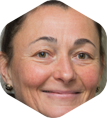
Prof. Isabelle Mansuy
Prof. Isabelle Mansuy

Prof. Isabelle Mansuy is Professor in Neuroepigenetics at the Medical Faculty of the University Zürich and the Swiss Federal Institute of Technology Zürich (ETHZ). She obtained a PhD in Developmental Neurobiology at the Université Louis Pasteur Strasbourg, France then trained as a postdoctoral fellow at Columbia University, New York before establishing her lab in Zürich (1999). Her research examines the epigenetic basis of complex brain functions and the heritability of acquired traits across generations in mammals. It focuses on the mechanisms underlying the expression and the inheritance of the effects of environmental factors such as traumatic stress in early life, on behavior and physiology, and their link with diseases in humans. The major goals are to gain new knowledge into the ensemble of non-genetic mechanisms, including DNA methylation, non-coding RNAs and histone modifications that are persistently altered by early experiences and how they are transmitted across generations. This research is based on mouse models and on translation to humans. Prof.Mansuy co-authored many research articles, reviews and books in the field of neuroepigenetics. She is member of the Swiss Academy of Medical Science, of the Research Council of the Swiss National Foundation, and of the European Molecular Biology Organization. She is recipient of the Medal of Chevalier dans l’Ordre National du Mérite and of the Medal of Chevalier dans l’Ordre de la Légion d’Honneur in France.

Prof. David Menon
Prof. David Menon

Prof. David Menon obtained his PhD in 2006 from London University. He is Principle Investigator in the Wolfson Brain Imaging Centre, and Co-Chair of the Acute Brain Injury Program at the University of Cambridge, UK. He currently acts as Vice-Coordinator of the CENTER-TBI project, a €30 million European multicentre study of precision medicine and comparative effectiveness research in traumatic brain injury (TBI). His research interests include neurocritical care, secondary brain injury, neuroinflammation, and metabolic imaging of acute brain injury, using positron emission tomography and high field magnetic resonance imaging. Research in his group has been supported by funding from sources, including the Academy of Medical Sciences, the Medical Research Council, the European Commission’s FP7 Program, the Royal College of Anaesthetists, the Evelyn Trust, and the Wellcome Foundation.

Prof. Andreas Meyer-Lindenberg
Prof. Andreas Meyer-Lindenberg

Prof. Andreas Meyer-Lindenberg is Director of the Central Institute of Mental Health, as well as the Medical Director of the Department of Psychiatry and Psychotherapy at the Institute, based in Mannheim, Germany and Professor and Chairman of Psychiatry and Psychotherapy at the University of Heidelberg in Heidelberg, Germany. He is board certified in psychiatry, psychotherapy, and neurology. Before coming to Mannheim in 2007, he spent ten years as a scientist at the National Institutes of Mental Health, Bethesda, USA.
Prof. Meyer-Lindenberg is the author of more than 250 peer-reviewed articles and book chapters in journals such as Nature, Science, Nature Neuroscience, Nature Medicine, Nature Reviews Neuroscience, Neuron, PNAS, and others. He figured in the list of the most cited scientists in the world in 2014 and 2015 (www.isihighlycited.com). He is the Editor-in-Chief of the European Journal of Neuropsychopharmacology and on the editorial board of a number of other journals such as Biological Psychiatry, Schizophrenia Bulletin, European Neuropsychopharmacology, Psychiatry Research, Neuroimaging and Neuroimage.
His research interests focus on the development of novel treatments for severe psychiatric disorders, especially schizophrenia, through an application of multimodal neuroimaging, genetics and enviromics to characterize brain circuits underlying the risk for mental illness and cognitive dysfunction.
In recognition of his research, Prof. Meyer-Lindenberg has received awards throughout his career, including the Joel Elkes International Award for Clinical Research from the American College of Neuropsychopharmacology (2006), the A.E. Bennett Award of the Society for Biological Psychiatry (2007), Kurt Schneider Scientific Award (2010), the Hans-Jörg Weitbrecht-Preis für Klinische Neurowissenschaften (2011), the ECNP Neuropsychopharmacology Award, 2012, and the Prix ROGER DE SPOELBERCH (2014).

Prof. Gero Miesenböck
Prof. Gero Miesenböck

Prof. Gero Miesenböck is Waynflete Professor of Physiology and founding Director of the Centre for Neural Circuits and Behaviour at the University of Oxford, UK. Before coming to Oxford in 2007, he held faculty appointments at Memorial Sloan-Kettering Cancer Center and Yale University.
Prof. Miesenböck has received numerous awards for the invention of optogenetics, including the InBev-Baillet Latour International Health Prize 2012, the Brain Prize 2013, the Heinrich Wieland Prize 2015, and the BBVA Foundation Frontiers of Knowledge Award 2015. He is an external member of the Austrian Academy of Sciences and a Fellow of the Royal Society.

Prof. Hideyuki Okano
Prof. Hideyuki Okano

Prof. Hideyuki Okano graduated from the Keio University School of Medicine, Japan in 1983 and received his Ph.D from the Keyo University in 1988. Currently he is a Dean and Professor at the Department of Physiology at Keio University School of Medicine. Prof. Okano made world history by being the first to discover the existence of neural stem cells in adult brains, providing evidence of the possibility of using these cells in the regeneration of the central nervous system. After researching the differential control mechanisms of neural stem cells using the drosophila fly in the 1990s, Prof. Okano has continued his research through studying the control mechanisms in the neural development of mice and the common marmoset – close in the order of primates to humans.
Prof. Okano serves on the Board of Directors of the International Society for Stem Cell Research and The Japan Neuroscience Society and sits on the editorial boards of several leading scientific journals, including Stem Cells, Stem Cells and Development and Cell Stem Cell.

Dr. Martin Pan
Dr. Martin Pan

Dr. Martin Pan is a physician specialised in Clinical Pharmacology. He is currently working in the European Medical Department of Biogen and coordinates the efforts at the Innovative Medicines Initiative (IMI) and real world data in Alzheimer’s disease. He has over 16 years of relevant clinical research experience, in different positions in clinical practice, industrial early clinical development/experimental medicine and medical affairs in Neuroscience (Alzheimer's disease and multiple sclerosis) and Infectious Diseases (neglected tropical diseases) at headquarters of GlaxoSmithKline, Otsuka and Lundbeck.

Prof. Mu-ming Poo
Prof. Mu-ming Poo

Prof. Mu-ming Poo received his B.S. in physics from Tsinghua University (Taiwan) in 1970 and his Ph.D in biophysics from Johns Hopkins University in 1974. Following postdoctoral research at Purdue University, he served at the faculty of University of California at Irvine, Yale University, Columbia University, and University of California at San Diego, before joining University of California at Berkeley, USA in 2000, where he had served as the Head of Division of Neurobiology in the Department of Molecular and Cell Biology, and Paul Licht Distinguished Professor in Biology. Since 1999, he also served as the founding director of Institute of Neuroscience, Chinese Academy of Sciences in Shanghai, and since 2014 as founding director of CAS Center for Excellence in Brain Science and Intelligence Technology. Prof. Poo had received Ameritec Prize (2001), People’s Republic of China International Science & Technology Cooperation Award (2005), Qiushi Distinguished Scientist Award (2011), CAS Distinguished Research Achievement Award (2013), and Docteur Honoris Causa from Ecole Normale Supérieure Paris (2003) and Honorary Doctorate in Science from Hong Kong University of Science and Technology (2014). He is a member of Academia Sinica, US National Academy of Sciences, and Academy of Sciences of Hong Kong, and a foreign member of Chinese Academy of Sciences. Prof. Poo is well-known for his contributions to our understanding of protein mobility in cell membranes, signaling mechanisms for nerve growth and guidance, synaptic modification by neurotrophins and electrical activity, and cellular basis of learning and memory.

Prof. Anton Rey
Prof. Anton Rey

Prof. Anton Rey heads the research Institute for the Performing Arts and Film (IPF) at the Zurich University of the Arts (ZHdK), Switzerland. Since 2002, he also teaches theatre history and dramaturgy at the Department of Performing Arts and Film. Before this, he worked for almost 20 years as Dramaturg and Assistant Director with Peter Stein, Peter Zadek, Luc Bondy, Robert Wilson, Wim Wenders, and others and directed stage plays and films in Vienna, Berlin, Oslo, Edinburgh and Zurich. He studied German Literature, Theatre and Philosophy at Zurich University and Free University Berlin. Currently he is working on projects such as Actor & Avatar, an interdisciplinary research dealing with the different perception of live and animated characters; DisAbility on Stage, an exploration of the physical in performing arts practices, and a publication Staging Space. The Architecture of Performance in the 21st Century (with Huang and von Fischer, Park Books, 2016).
Since 2015 he was nominated member of PEEK Board of the Austrian Science Fund (Fonds zur Förderung der wissenschaftlichen Forschung FWF).

Prof. Mark Schnitzer
Prof. Mark Schnitzer

Prof. Mark J. Schnitzer is a Howard Hughes Medical Institute Investigator and an Associate Professor at Stanford University, USA with a joint appointment in the Departments of Biology and of Applied Physics.
Prof. Schnitzer is the Co-Director of the Cracking the Neural Code Program and is a faculty member of the Neuroscience, Biophysics, and Molecular Imaging Programs in the Stanford School of Medicine, as well as of the Stanford Neurosciences Institute and Stanford Bio-X. Dr. Schnitzer has longstanding interests in neural circuit dynamics and optical imaging, and his optical innovations are used in over a hundred neuroscience labs in the USA, Europe and Asia, and in the neuropharmaceutical industry. The miniature integrated fluorescence microscope invented in his lab was named the 2013 Innovation of the Year by The Scientist magazine. Prof. Schnitzer has received the NIH Director’s Pioneer Award, the Biophysical Society’s Michael and Kate Bárány Award, and a Presidential Young Investigator Award, and was a finalist for the 2013 Israel Brain Prize. He is a member of the National Institutes of Health working group for President Obama's BRAIN Initiative (Brain Research through Advancing Innovative Neurotechnologies).

Prof. Terrence Sejnowski
Prof. Terrence Sejnowski

Prof. Terrence Sejnowski is a pioneer in computational neuroscience and his goal is to understand the principles that link brain to behavior. His laboratory uses both experimental and modeling techniques to study the biophysical properties of synapses and neurons and the population dynamics of large networks of neurons. He has published over 500 scientific papers and 14 books, including The Computational Brain. He received his PhD in Physics from Princeton and is currently an Investigator with the Howard Hughes Medical Institute, a Distinguished Professor at the University of California at San Diego and holds the Francis Crick Chair at The Salk Institute, USA. Ptof. Sejnowski is the President of the Neural Information Processing Systems (NIPS) Foundation, the premier conference on machine learning and neural computation. Prof. Sejnowski is a member of the National Academy of Sciences, the National Academy of Medicine and the National Academy of Engineering. He was instrumental in shaping the BRAIN Initiative that was announced by the White House in 2013 and served on the Working Group of the Advisory Committee to the Director of NIH for the BRAIN Initiative.

Dr. Tej Tadi
Dr. Tej Tadi

Dr. Tej Tadi is an Electronics Engineer and has pursued an advanced master in Virtual Reality & Computer Graphics at the EPFL, Switzerland. During his PhD (EPFL), he set up an immersive virtual reality system in combination with state-of-the-art brain imaging technologies enabling trans-disciplinary work in cognitive psychology, neuroimaging, and virtual reality. His research has led to important and highly visible scientific publications (Science) and awards (Pfizer Award for Neuroscience in 2009). Through his research, he has built a strong multi-disciplinary base spanning computer science, systems biology, neuroimaging, and computational and cognitive neuroscience. He founded MindMaze in 2011 to design and develop novel applications in Neuro-Rehabilitation, Game training & Interfaces. The technology platform from MindMaze will help in the neurology, psychiatry and sports rehabilitation. He recently launched the worlds first neurogoggles combining neural sensing with embedded motion capture cameras, to harness the power of players’ minds to enhance gameplay and experiences in both virtual and augmented reality. Dr. Tadi was nominated as a Young Global Leader 2015 by the World Economic Forum.

Prof. Dimitri van de Ville
Prof. Dimitri van de Ville

Prof. Dimitri Van De Ville received his M.S. and Ph.D. degrees in Computer Science from Ghent University, Belgium in 1998 and 2002, respectively. From 2002 to 2005, he was a post-doctoral fellow at the Biomedical Imaging Group of Prof. Michael Unser at EPFL, Switzerland. In 2005, he became responsible for the Signal Processing Unit at the University of Geneva (UniGE) and Geneva University Hospital as part of the Centre d’Imagerie BioMédicale, a large imaging initiative of the Lemanic academic institutions. In 2009, he was awarded an SNSF professorship and he started a joint tenure-track professorship at the UniGE (Department of Radiology and Medical Informatics, Faculty of Medicine) and the EPFL (Institute of Bioengineering, School of Engineering). Since 2015 he has been appointed Associate Professor of Bioengineering at both institutions and his lab is located at the newly established Campus Biotech in Geneva.
Prof. Van De Ville has published more than 100 journal papers on signal processing, wavelet theory, network science, and applications in neuroimaging. He has been awarded the Pfizer Research Award 2012, the NeuroImage Editors’ Award 2013, and the NARSAD Independent Investigator Award 2014. He has been the chair of the IEEE Biomedical Imaging & Signal Processing TC as is now the founding chair of the newly established EURASIP Biomedical Image & Signal Analytics SAT.
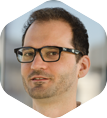
Prof. Nikolaus Weiskopf
Prof. Nikolaus Weiskopf

Prof. Nikolaus Weiskopf graduated in physics from the University of Tuebingen, Germany in 2000 and received his Ph.D. from the International Max Planck Research School in 2004. Currently he is a Director, Department of Neurophysics, Max Planck Institute for Human Cognitive and Brain Science, Germany and Professor of MR Physics and Neuroimaging at UCL Institute of Neurology, UK. His primary research interest is MRI-based in-vivo histology and functional microstructure imaging. Prof. Weiskopf is a member of the Young Academy of Europe, the UK Biobank Imaging Extension External Advisory Board and the International Scientific Advisory Board, Salzburg University, Austria.
Keep in touch
Subscribe for the latest announcements and events from The Brain Forum.




